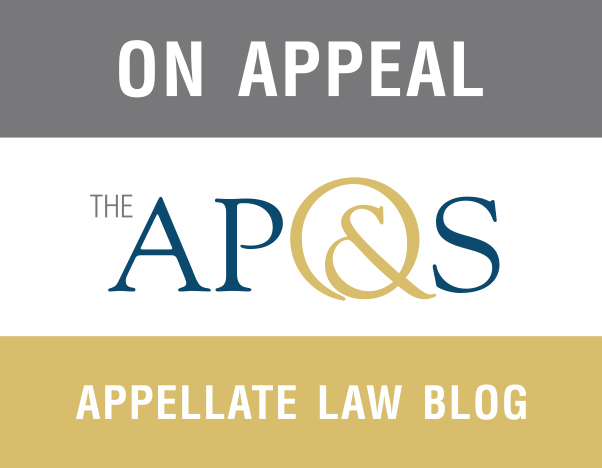In Lombardi v. City of Providence, No. 2012-86-Appeal, the Rhode Island Supreme Court reminded litigants that a party who is not aggrieved by a judgment cannot be qualified as an appellant on appeal.
In that case, the plaintiff had filed suit against the City of Providence (the “City”), alleging that it negligently failed to maintain or repair a portion of the sidewalk where the plaintiff had fallen. Id. at 1-2. The plaintiff later amended her complaint to add the state as a defendant. Id. at 2.
Importantly, the state never filed a cross-claim against the City. Id. The City moved for summary judgment, arguing that it did not owe a duty to the plaintiff because the state, not the city was responsible for maintenance and repair of the sidewalk. Id. The state opposed the City’s motion, arguing that there was a genuine issue of material fact as to which entity was responsible for maintenance and repair of the sidewalk. Id. The trial court disagreed and entered summary judgment in favor of the City. Id. at 5. Final judgment entered in favor of the City on plaintiff’s claims and the state filed an appeal. Id.
After oral argument on the state’s appeal, the Court ordered the parties to file memoranda addressing whether the state, having chosen not to file a cross-claim against the City, was a party aggrieved by the Superior Court’s judgment. Id.
R.I. Gen. Laws § 9-24-1 sets forth the right of a party to appeal from a final judgment of the Superior Court. That statute provides, in relevant part, “[a]ny party aggrieved by a final judgment, decree, or order of the [S]uperior [C]ourt may, within the time prescribed by applicable procedural rules, appeal to the [S]upreme [C]ourt.”
In Lombardi, the Rhode Island Supreme Court held that the rights set forth in R.I. Gen. Laws § 9-24-1 “‘must be read in light of our long-established rule that a person is aggrieved by a judgment when it adversely affects, in a substantial manner, his [or her] personal or property rights.’” Id. at 6. (quoting Adams v. United Developers, Inc., 397 A.2d 503, 505 (R.I. 1979)). “‘[A]n aggrieved party is one whose interest in the lower court decision is actual and practical, as opposed to merely theoretical.’” Id. (quoting Adams, 397 A.2d at 505). Applying those principles, the Rhode Island Supreme Court concluded that the state was not an aggrieved party because it had not filed a cross-claim against the city.
Although the plaintiff was a party that was aggrieved by the trial court’s judgment, the plaintiff did not appeal the trial court’s judgment.




